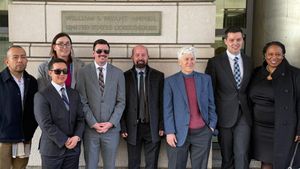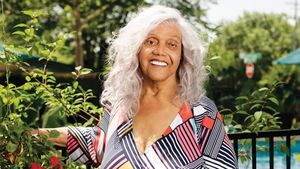African leaders recently met for the 36th Session of the African Union, where they committed to a set of actions for boosting progress toward ending AIDS on the continent.
The event, co-hosted by the African Union, NEPAD, UNAIDS and PEPFAR, saw heads of state and government declare commitments of personal responsibility to provide active leadership in the AIDS response.
Chief Executive Officer of the African Union Development Agency (AUDA-NEPAD), Nardos Bekele-Thomas, noted the impact of the twin pandemics of COVID-19 and HIV, which have exposed huge weaknesses in the African health system that have put the continent behind on its plan to make Africa AIDS-free by 2030.
“The coming into force of the African Medicines Agency (AMA) Treaty is an important milestone for the continent,” Bekele-Thomas said in a statement. “Aligned and coordinated regulatory systems will open up the continental market for pharmaceuticals and enable our manufacturers to leverage the advantages of the ACFTA.”
Despite advancements in treatment and care, the global progress against AIDS is faltering for the first time in more than two decades. Six out of seven new HIV infections among 15-19-year-olds were female, and women accounted for 62 percent of all new HIV infections in 2021. Additionally, only 50 percent of HIV-positive children received their needed care.
During the event, African leaders promised to create a conducive structural, legal, regulatory, and policy environment to address HIV-related equity gaps, promote gender equality with a respect for human rights, and eliminate HIV stigma. The African nations pledged to do more to modernize supply chains and get medications and services to more Africans living with HIV, and to integrate HIV care with other health services. African leaders also admitted many nations have not followed through with previous commitments on health funding, signaling more oversight on this issue in the future.
“Universal Health Coverage is another opportunity for African self-reliance, creating national insurance schemes where resources are collected and insurance is rolled out for all those who cannot afford it,” said Winnie Byanyima, UNAIDS Executive Director. “This must include HIV services. People living with HIV are citizens like any other.”








































































